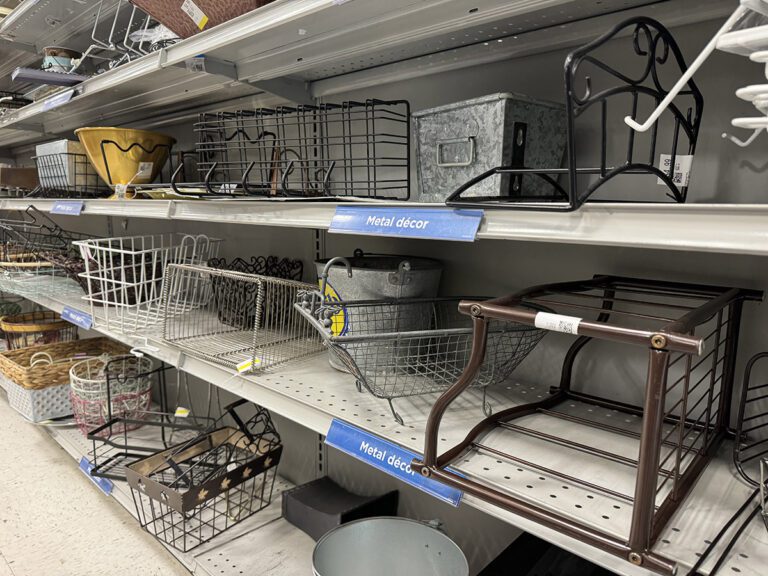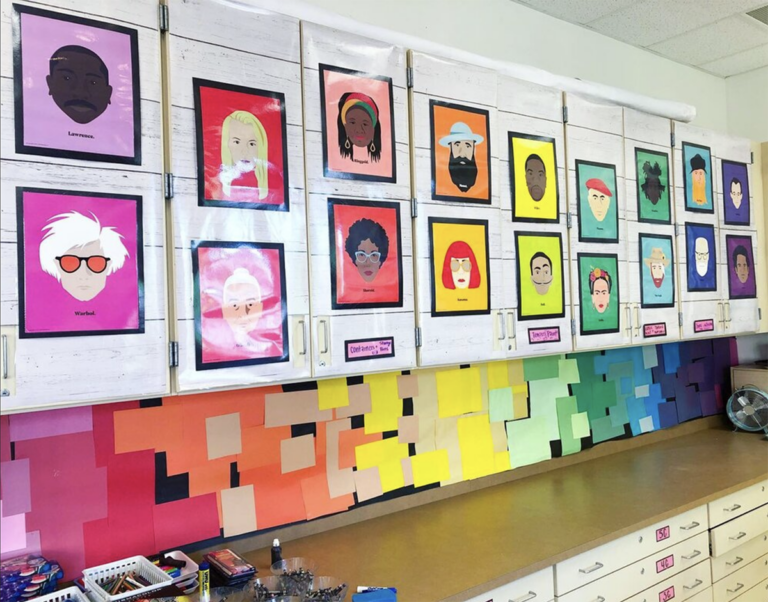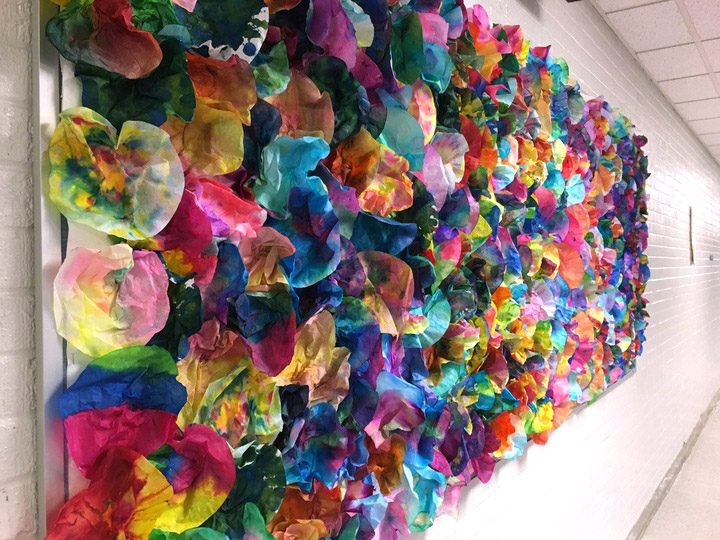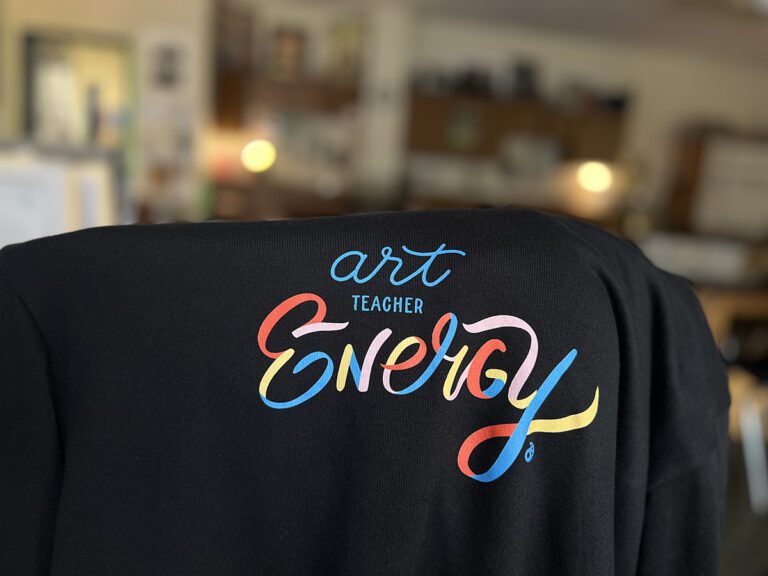New technologies are continually hitting the market. Educators are always looking for the next innovative thing to bring into their classroom. Some of them don’t stand the test of time, but others show tremendous potential. One such innovation that is perfect for the art room is the 3D pen. It’s not just another device, but it is a new sculptural medium.
Learn how you can use 3D pens in your art room to encourage critical thinking and problem solving while creating.
Here are 4 ways you can use 3D pens in the art room.
1. Learn 2D vs. 3D Forms
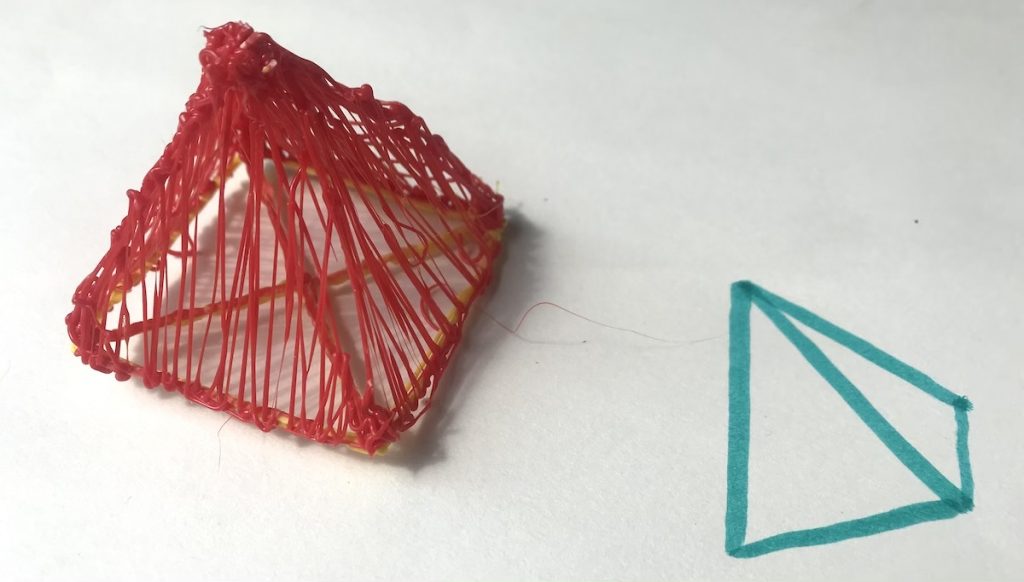
The technology of the 3D pen will enamor your students because they can draw in thin air. For students who struggle to see how 2D shapes translate to 3D forms, the use of this sculptural device will allow them to explore this complex idea tangibly. We know some of our students work best in 2D while others flourish with 3D creation. Using this tool will enable learning to meet the needs of all learners.
2. Product Design
Have you ever explored product design with your students? It can be quite the process. Developing an idea, creating the package design, and producing the product can be a challenging yet rewarding experience for students. However, failure in design will occur somewhere along the way. Consider using the 3D pen for students to create their own products. The tool can be used to develop maquettes or the product itself. Your students might choose to explore jewelry making, decor, tool creation, and so much more! Your students’ imaginations are sure to run wild.
3. Make Stencils and Stamps
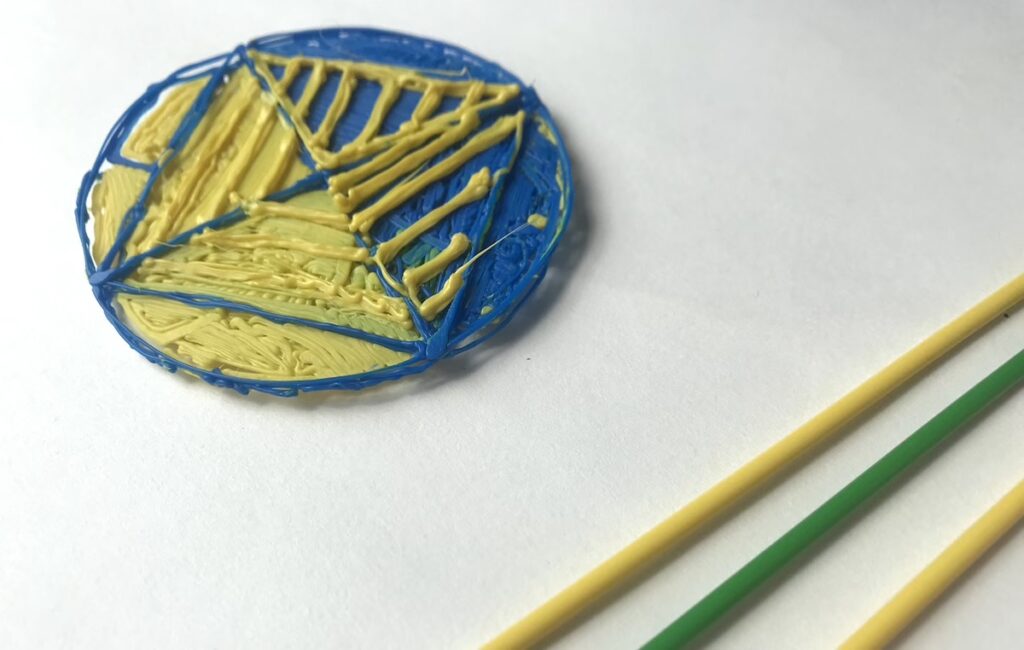
Stencils and stamps can serve as useful tools in the art room. They can create beautiful texture for clay or even be used as stencils for printmaking or drawing. The great thing about using 3D pens is that you can layer and build up the filament, so it is nice and strong. If you want to create a more lightweight stencil, less filament is needed. Learn how to make stamps and cookie cutters using a 3D pen here.
4. Use Molds to Explore Form
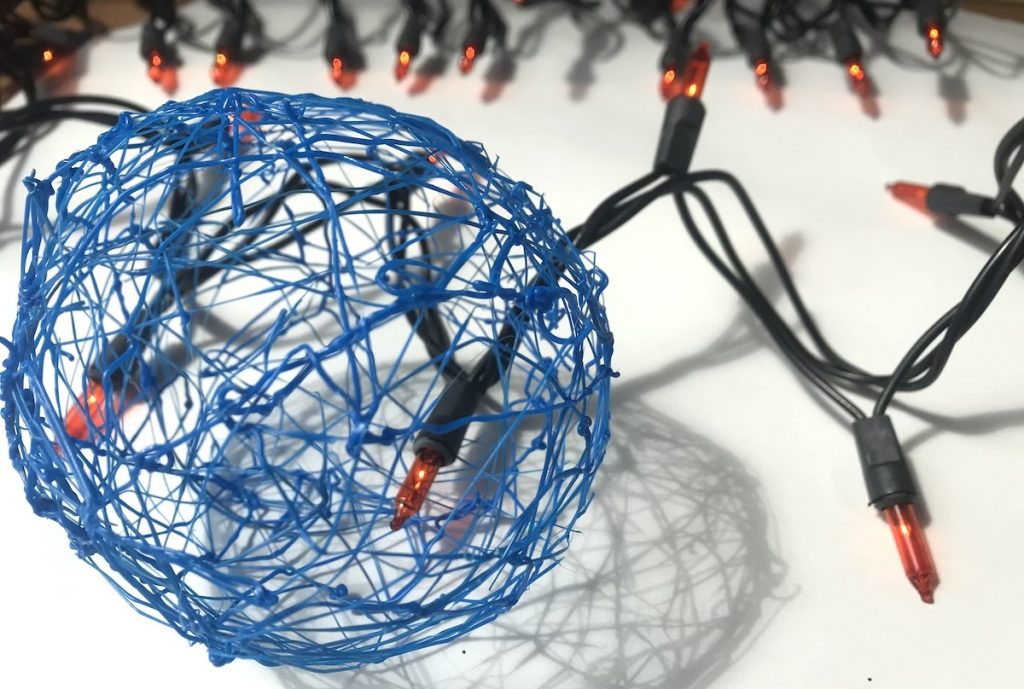
Using molds to create forms with clay and plaster can be a rewarding sculptural process. When using molds, students can see how they become a tool to aid in creation. They can help support a piece or even speed up the creation process if creating multiple pieces. Using found object molds is an excellent way to create with a 3D pen. From silicone molds to using a balloon or bowl, your students can start creating countless sculptures. Take a look at how you can use a balloon mold to create decorative light lanterns in this video.
Tips for Obtaining 3D Pens For Your Classroom:
3D pens would be an exciting addition to any art room. However, when implementing new technologies, there is always a cost. If you’re not sure if a 3D pen is right for your classroom, you can purchase a Teacher Experience Kit at a discounted rate.
After testing it out, if you decide it’s right for your classroom, the next question you’ll ask is how many should I get? Ideally, you’d purchase enough for an entire class set, but this might not be feasible. Instead, consider starting with a smaller number like five. This way, multiple students can use them simultaneously. You might consider placing them in a sculpture center or setting up a calendar system for student use.
If purchasing 3D pens isn’t in your budget, consider setting up a Donor’s Choose project to obtain them. Make sure to check the match offers as there are many opportunities to get more funding through STEAM and technology initiatives.
Think of the 3D pen as a new sculptural medium that will invigorate and excite learning. The best part about using a device like this is that your students are making all the structural and creative decisions when creating. Yes, it is technology, but a machine isn’t doing the creating—your students are!
What other questions do you have about 3D pens?
Have you ever used 3D pens in your art room?
Magazine articles and podcasts are opinions of professional education contributors and do not necessarily represent the position of the Art of Education University (AOEU) or its academic offerings. Contributors use terms in the way they are most often talked about in the scope of their educational experiences.


